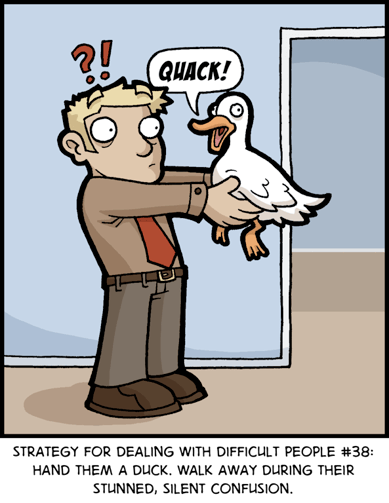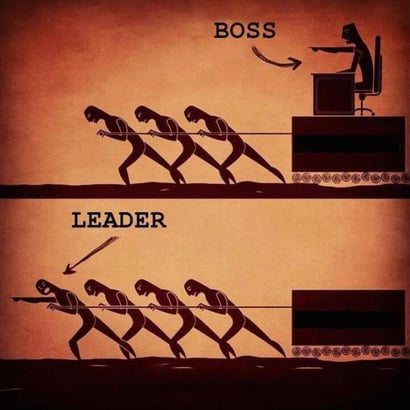
You're not going to get along with everyone you meet, that's a given.
However, sometimes it's necessary to work alongside someone you don't get along with - whether it be at home, work, school or in your social group and knowing how to effectively handle these situations is important.
We are all different people, and thus, not one cookie-cutter plan will necessarily work for everyone. However, with a plan that can be altered and formed based on each individual person, you have a greater chance of success.
Here is a simple, 3-step process that will assist you in dealing with difficult people effectively:
Listen to understand
Perhaps the most important part of the process is this. In order to find out why someone is being difficult, we must first hear about their feelings and try to understand why they're reacting the way that they are.
Be sure that you are actively listening. If it's obvious that your mind is somewhere else, or that you're trying to get the conversation over with, you won't be able to formulate a successful plan. The effort has to be there from both parties.
You should try to listen for the areas that they are struggling with and try to find the root cause. By knowing the root cause of why they're being difficult will help you to know where you need to change.
Equally as important, you should also listen for what they consider to be their strengths. This will allow you to play off of them and make it easier when it's time to make a plan and follow through.
By listening to the person, you are showing an interest in their issues and situations. In turn, they will be more willing to work with you to promote a positive change in their actions.
Make a plan
Once you have determined the reasons why the person is difficult, the next step is to create a plan of action. Your plan might be simple, or you may need a series of plans to reach your final goal.

It is important to remember that when dealing with difficult people, in order for the relationship to change for the better, both parties have to change. Even though your actions aren't in question, you must change the way you react to others.
Tip: try to involve the difficult person as much as possible when creating the plan. If they know what's going on and have a say, they can better apply themselves to the plan, and they'll have more motivation throughout the process.
Be proactive
In the end it is your choice on how you react to the actions of others. If you wait for the other person to change, nothing will be repaired.
Don't choose to be a victim, be proactive instead and follow the plan you have decided upon. If the difficult person chooses not to actively participate, you must take it upon yourself to make the changes that the relationship needs.
It is important to stay positive throughout all steps. This goes for all parties; encourage the other person to think positively about the plan, why it's in place and the end goal. If something isn't working, try something else.
What if it doesn't work?
This process is not a short and sweet one, by any means. Learning the key to dealing with difficult people is a lengthy process - one that requires commitment to change. And remember, this commitment and will to change must come from all parties involved,
You may have to start at the listening step twice, three times, or even more before you can complete the process. If in the end you find that you are still unable to effectively deal with the difficult person, you can take with you these steps that will perhaps benefit you with someone else.
Be a leader
Not only is it important for your working relationship with this person, but it can also be important to the overall success of your department, business or company.

If you are a superior in an office setting and it it one of your subordinates who you're struggling with, it's even more important to learn how to cope.
Part of the reason you were chosen for a managerial position is because of the way you handle situations under stress. So, it's only fitting that dealing with difficult people should be something that you can deal with effectively.
It is part of your job as a manager or other superior role to lead others to ensure the greatest amount of success. If you cannot work with your people, the overall success will suffer.
Remember, although dealing with difficult people can be a struggle, it's about how you react as well. If you have difficulty dealing with someone at work, home or school, try these simple steps and see if you can promote a healthy change in your relationship.

-1.png)

